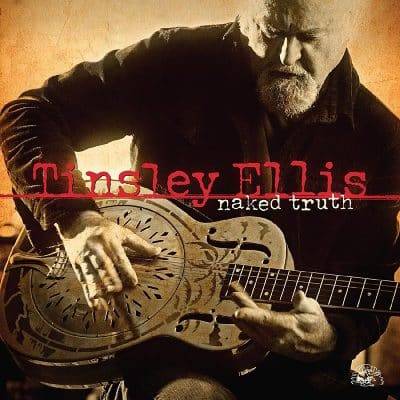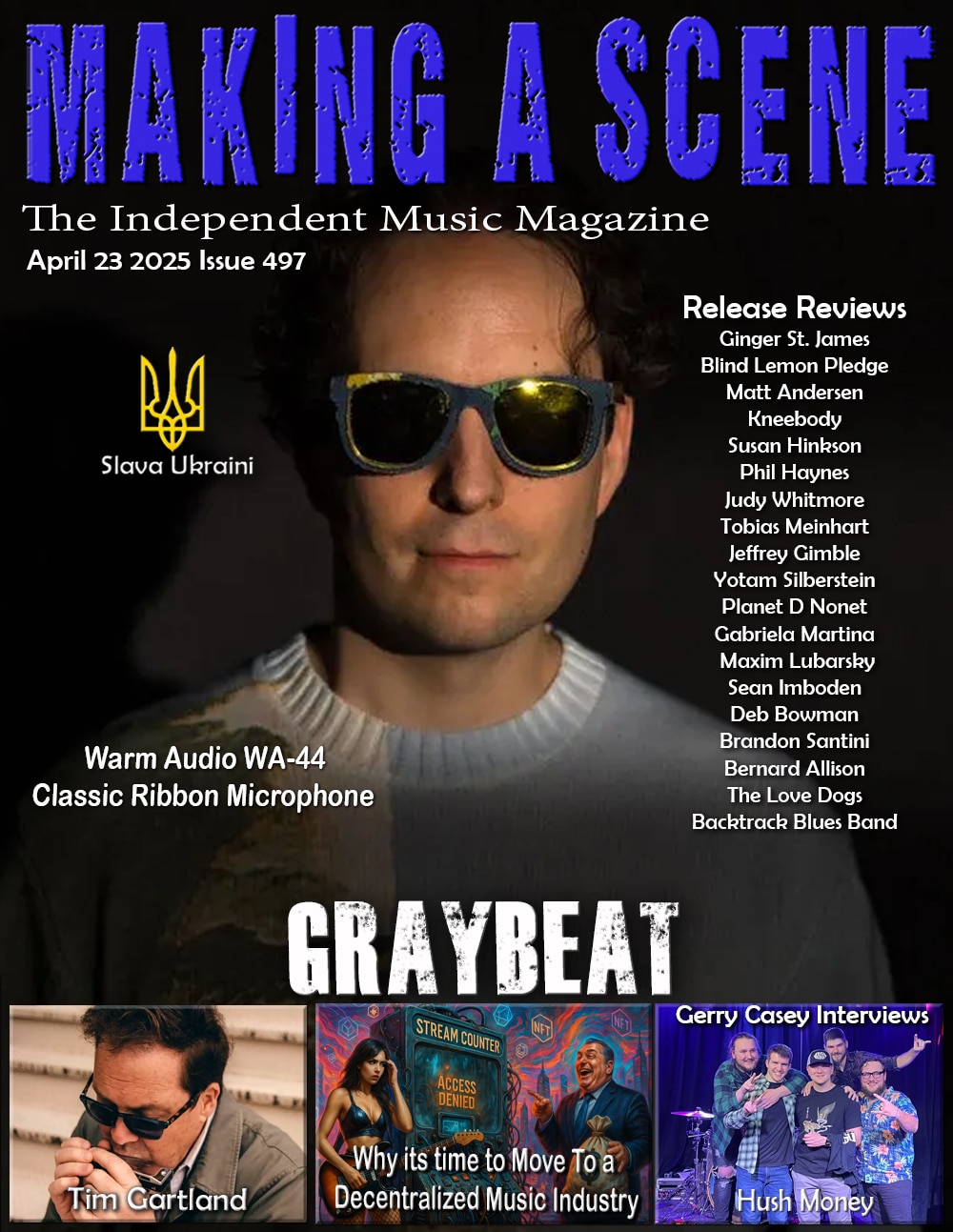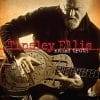Tinsley Ellis Naked Truth
 Tinsley Ellis
Tinsley Ellis
Naked Truth
Alligator Records
Atlanta’s Tinsley Ellis Offers Making a Scene Some Peeks Behind the Scenes of Naked Truth, His First All Acoustic Album
“I still have that string!” The excitement Tinsley Ellis felt as a 15-year-old when B.B. King handed him his broken string from the stage resonates as if 51 years ago was yesterday. Ellis started playing at seven to records by the British Invasion bands, but that night became hell-bent on blues guitar. Nine years later, he cut the first of four albums with the Heartfixers. Two featured singer Chicago Bob Nelson, the third singer Nappy Brown, and the final was Ellis’s breakout as a songwriter and gritty, penetrating vocalist. Alligator Records took notice, and came calling in 1988. “That was the turning point in my career,” he said of his signing to one of America’s most venerated blues labels.
Long renowned now as a rough and tumble blues-rocker, Ellis makes it clear: “I like all kinds of music, with the guitar being the common denominator.” He proves that through all 23 of his recordings, with original tributes to the style of his home state Georgia’s soul music (Red Clay Soul), and to the personalities of guitarists ranging from Chuck Berry to Roy Buchanan to Carlos Santana (the all-instrumental Get It!), among them. The recent Devil May Care featured his songs in the veins of Al Kooper and Mike Bloomfield, ZZ Top and others, with a sharp focus on The Allman Brothers Band. “Their music plays in my head all the time,” he told me then. Remarkably, regardless of the style he plays in, or who he might emulate given a moment, Ellis maintains a distinctive character. Tinsley Ellis always sounds like original, 100% potent Tinsley Ellis.
With Naked Truth, Ellis lays bare his love of early to mid-20th century folk/blues, surrounding an inspired trio of vintage songs with nine compelling new ones. He sings and plays them alone on either a 1969 Martin (a cherished gift from his dad) or a 1937 National Steel. One listen to the album confirms that there is no better way to enjoy the ‘naked truth’ of Ellis’s artistry.
The album opens with the boot stompin’ “Devil in the Room,” the groove jubilant, Ellis sliding and slicing on his National Steel as his protagonist successfully flees from a bad seed partner. Next, he pulls out the Martin and deftly fingerpicks through his reflective “Windowpane,” where the character pleads for the return of his lady and her love. The irony continues, because the latter song recalls Skip James’s “Devil Got My Woman” from 1931. “Yes, “Windowpane” is heavily influenced by James, one of my favorite delta blues artists. It’s in the same guitar tuning he used.”
The program alternates in intensity and blends seamlessly. Ellis’s own sparse “Hoochie Mama” and careening “Tallahassee Blues” sound as if they originate from the same timeframe as his stout rendition of Son House’s “Death Letter Blues.” Ellis proves himself crafty, deferential, and rousing in voice and on guitar, all at once, and at every turn. “This is a record I’ve always wanted to make, and one that my fans have been asking for.”
For good reason, it turns out.
The idea for Naked Truth stemmed in part from social media videos Ellis made of some of the hundreds of songs he wrote during lockdown, and the subsequent acoustic treks he took across the country both on his own, and with Alligator labelmate Marcia Ball. “The only good thing that came out of that damn pandemic,” he said, “Was that it got me to focus more on songwriting.”
Ellis’s vivid songwriting here includes three of the four instrumental interludes. “Silver Mountain” chimes and charms, while “Alcovy Breakdown” finds Ellis driving hard and slipping in couplets from Led Zeppelin’s “Bron Y Auer Stomp” along the way. “There’s some Pete Townsend in there as well!” Leo Kottke’s “The Sailor’s Grave on the Prairie,” from his 1969 debut 6- and 12-String Guitar, appeared on the Heartfixers’ Cool On It in 1986. “Yes, I’ve been playing that song for over 50 years!” After all this time, Ellis picks the ingenious changes in melody that make Kottke stand alone, exquisitely.
The snappy “Grown Ass Man” made me think of Richie Havens. “Maybe,” Ellis said. “But I started out trying to write one like Mose Allison.” Tinsley Ellis delivers endless vision and an enthralling and widely appealing experience throughout Naked Truth, an album that should endure alongside a Son House, a Mose Allison, or a Leo Kottke classic.
Tom Clarke for MAS, with thanks to Tinsley Ellis
Buy Us a Cup of Coffee!
Join the movement in supporting Making a Scene, the premier independent resource for both emerging musicians and the dedicated fans who champion them.
We showcase this vibrant community that celebrates the raw talent and creative spirit driving the music industry forward. From insightful articles and in-depth interviews to exclusive content and insider tips, Making a Scene empowers artists to thrive and fans to discover their next favorite sound.
Together, let’s amplify the voices of independent musicians and forge unforgettable connections through the power of music
Make a one-time donation
Make a monthly donation
Make a yearly donation
Buy us a cup of Coffee!
Or enter a custom amount
Your contribution is appreciated.
Your contribution is appreciated.
Your contribution is appreciated.
DonateDonate monthlyDonate yearlyYou can donate directly through Paypal!
Subscribe to Our Newsletter
Discover more from Making A Scene!
Subscribe to get the latest posts sent to your email.














































